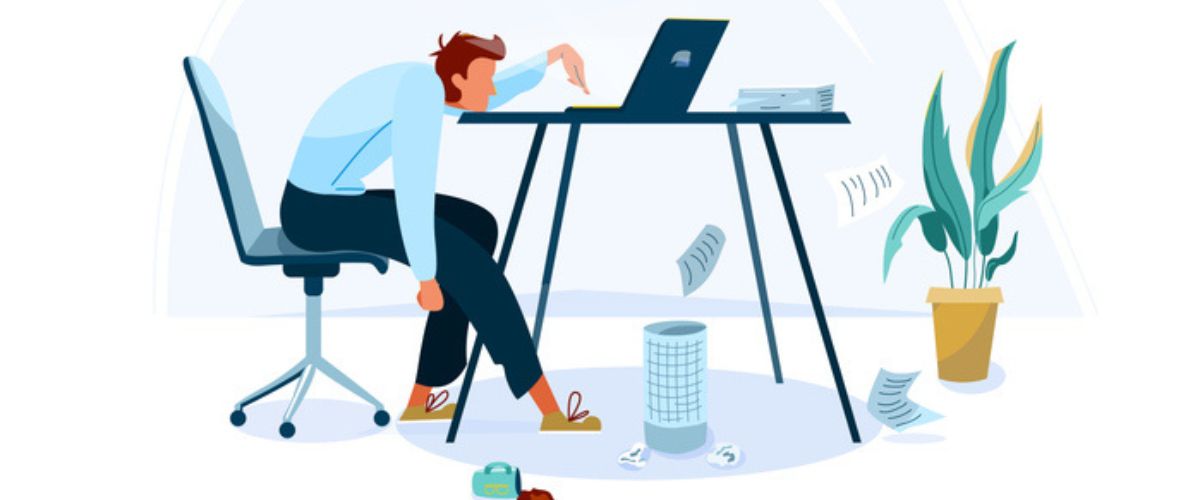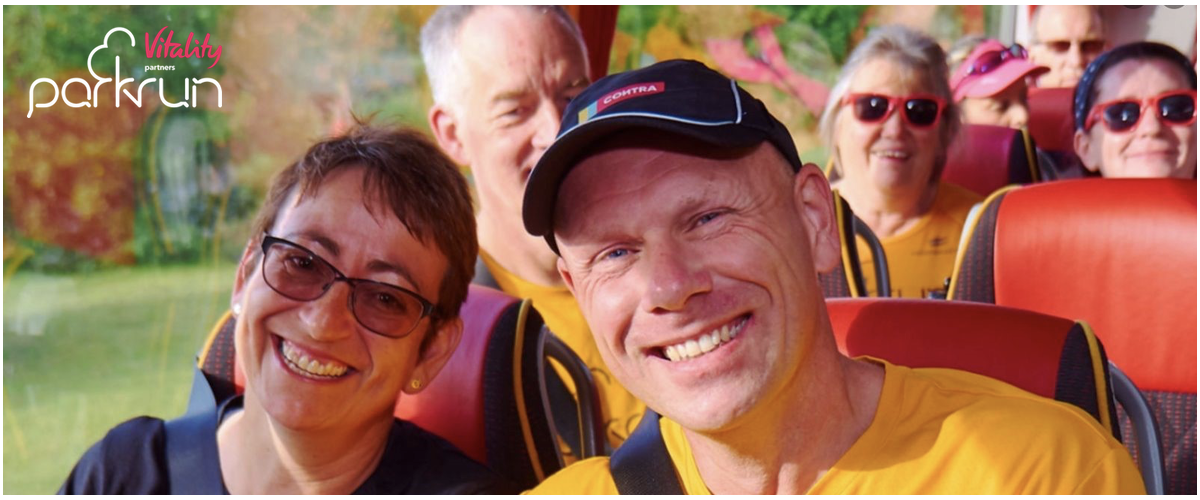9 ways to beat workplace burnout
What is burnout and how do you spot the signs? Our experts share 9 ways you can keep that work-life balance in check

While many of us found a new lease of working life during lockdown (morning walks and home-cooked lunches, we’re looking at you), for a big chunk of us, work-related stress was busy bubbling away.
If you find that your go-to response when a colleague or friend asks ‘how are you?’ is still ‘busy’, ‘stressed’ or ‘I’m so tired’, know that you’re not alone. In fact, research from LinkedIn and the Mental Health Foundation revealed that 56% of people said they feel more anxious and stressed now compared to pre-pandemic, with a 2021 report revealing that 79% of employees have experienced burnout.
As we all become more au fait with the signs of stress and burnout, the good news is we can take steps to manage them – including returning to the workplace armed with expert advice to keep us in optimum work-life balance mode.
So, what is burnout?
“Many people don’t know this, but burnout is not yet a recognised medical condition,’ says Belinda Sidhu, psychotherapist and workplace wellbeing coach.
“While a lot of us use the phrase and are familiar with what it means, it’s described by the World Health Organization (WHO) as a syndrome resulting in 'chronic workplace stress that’s not been successfully managed',” she adds.
There are three aspects to burnout: feeling a lack of energy or exhaustion; increased mental distance or feelings of negativity or cynicism relating to work; and reduced efficiency at work.
What are some of the signs of stress that could lead to burnout?
While we all manage stress very differently, Sidhu explains that there are some universal signs to look out for.
“I normally split stress into three categories: physical, emotional, and behavioural. The thing that’s important to notice is any behaviour or symptoms that are outside the norm for you,” she explains.
- Physical signs of stress: This could mean aches and pains such as headaches or joint pain. You might experience trouble sleeping, muscle tension, jaw clenching or teeth grinding at night. Some people are affected with digestive problems such as bloating, or their breath is very much in the upper part of the body, so they’re in fight-or-flight mode rather than rest-and-digest, which is what we want.
- Emotional signs of stress: You might be more emotional than usual. So maybe feeling more irritable than usual or getting more angry or frustrated with things that wouldn’t normally phase you.
- Behavioural signs of stress: For instance, are you sleeping less than what was previously normal for you? Has your diet changed? Perhaps you’re drinking more alcohol than what you’d classify as normal for you. These could all be signs that you’re experiencing chronic stress.
How to beat workplace burnout
Remember that slightly bizarre phrase that was doing the rounds in 2020 and 2021 – ‘We’re living in unprecedented times’?
Well, we certainly have been. With the ongoing unknown of a post-pandemic world, many people still losing their jobs and colleagues left to pick up the slack, it’s no surprise we’re feeling the strain. “We have all faced, and are still facing, collective trauma,” says Belinda.
“A lot of us have experienced acute life events over the last two years, whether that’s losing our jobs or loved ones, and we’re now facing other everyday stresses such as rising living costs. That said, there are ways you can manage stressful work situations and keep burnout at bay,” she adds.
Here are 9 expert-approved ways to improve your workplace wellness, one step at a time:
Keep hold of healthy habits
As many of us return to the workspace or combine WFH with going back to the office, Belinda suggests keeping hold of any positive behaviours that manifested during lockdown.
One of the luxuries of working from home was going out to our gardens or our nearby green spaces at lunchtime.
How many of us know the environment around our actual workplace? I don’t! Why not use this opportunity to explore your local area? If you have to have a meeting at lunchtime, why not make it a walking meeting?’ suggests Belinda.
And don’t forget, if you track your daily steps, you’ll earn your all-important Vitality points, too. Double win.
End your working day like a boss
Lockdown saw us clocking up an additional two hours a day at our desks, contributing to feelings of overwhelm, stress and fatigue.
”Wherever you’re working, put everything away at the end of the day,” advises Belinda.
”I know it can be a bit of a hassle, but separating yourself mentally and physically from work can be really helpful when clearing your mind. I turn off my work phone and make sure my laptop is off. When it’s in sleep mode it’s very easy to open it up again, but putting it away out of sight until it’s time to go back to work again can be really effective at helping you switch off properly.”
Ending your day by doing something to mark the beginning of your own free time can also be beneficial, says Belinda.
”Take a walk round the block before you hop on the train home [if you’re commuting] to give your brain space to decompress from the day.”
Don’t forget, as a Vitality member you could get a 12-month subscription to the Headspace app, perfect for those moments when you need to zone out.
Learn to conserve your energy
”The most important thing you can do to keep burnout at bay and to really thrive is to learn how to manage your physical, emotional, mental, spiritual and motivational energy,” says Selina Barker, Life Design and Career Change Coach and Author of Burnt Out.
”Recognise how your energy works and understand what helps you to rest and really switch off.”
So, an evening of wine and Bridgerton? Not necessarily, says Barker.
”Lying in front of the TV isn’t really filling up your cup. You might feel like it’s all you can do at the end of a busy day, but making some time for movement will energise you.”
Think about the things you really enjoy doing and make time to do them,’ Barker suggests. If you’re feeling overwhelmed, then plot in time to recharge.
”Have a look at your calendar over the next few months and make sure you’re scheduling evenings and weekends which are all about resting and recharging, whatever that looks like for you and don’t be afraid to say no to plans – you don’t need to give a reason, just know that taking this time to recharge will benefit you in the long run,” Selina adds.
Check in with yourself
If you’re going back to your normal 9 to 5 routine, then take a moment to consider what behaviours you might want to reset, suggests Belinda.
”With any change, comes feelings. Perhaps ask yourself, 'what are my current behaviours?' For example, it could be 'checking my work emails at 10 o'clock at night when I don’t really need to'.”
Then ask yourself where would you like to be in terms of this behaviour? Think of this time as a bit like New Year – an opportunity to take tiny steps towards new small habits that you can start implementing,’ adds Belinda.
Care less (yep, you read that right)
OK, so we don’t mean storming out of a meeting or taking three-hour lunch breaks, but making sure work isn’t the be-all and end-all.
”Whether you run your own business or you’re employed, I think we can get into becoming completely obsessed with work and feeling that unless we’re giving every hour, every day and constantly thinking about it, we won’t succeed,” explains Selina.
It’s this always-on culture that has been driven, to a degree, by working from home where the work-life lines are blurred.
”For that person who’s always online or emails at two in the morning and never switches off – this way of working is not sustainable and they will burn out,” Selina says. So how do we care less?
”Of course, you want to be dedicated to your work and bring your best self to work. But the way you’re going to do that is, actually, by not working all the time. By looking after your energy and your wellbeing and learning to not focus every aspect of your life around work, you’ll actually find that you’ll be producing better work,” Selina says.
Learn to be wise about social events
One of the things many of us missed during lockdown was the impromptu after-work drink with colleagues or a quick bite to eat in town, but late nights and one too many after-work pints can contribute to fatigue and burnout.
”Look at your priorities,” recommends Belinda.
”You don’t have to say yes to everything, but that doesn’t mean you have to say no either. It’s about using your own self-awareness as to what feels good for you and what feels like it’s too much. I refer to this as your comfort zone, your growth zone and your stress zone. Is saying yes to lots of after work drinks pushing you into your stress zone, for example?” says Belinda.
Could you use being back in the office with your work colleagues as a chance to take up a new sport, try out a new hobby or hit the gym together instead of heading to the pub at 5.30?
Take (guilt-free) breaks
”Taking breaks is one of the most powerful things you can do to calm your nervous system and top up your energy levels throughout the day,” says Selina.
Remember that phase at the beginning of lockdown where we were all slightly panicked about working remotely and not wanting to take too many breaks in fear of our bosses?
It’s that ‘pushing through’ mindset that can be detrimental on many levels, Selina explains: ”We have this idea that we can operate like machines, and so if we work as fast as possible and squeeze as many hours into our day as we can, we will produce the most – but humans don’t work like robots.
”When you’re in that place of stress, what happens is your IQ drops, you get tunnel vision, you can’t access the higher powers of intuition, creativity and problem-solving.”
So, what’s the solution? ”Research has shown that our brain activity naturally lulls every hour-and-a-half to two hours and that people who take a break in line with this will have done more work by the end of the day and produce better-quality work than their colleagues who have valiantly kept going,” Selina explains.
If you've been on your own and you’re an extrovert, have a quick chat with someone.
Equally, if you’re an introvert and you've been in meetings all morning, go and have some quiet solitude. Find what works for you.
Ask for support if you can
While we’ve been doing the dance between remote and hybrid working, remembering that we have a team who is there to support us has often fallen by the wayside.
”Your line manager has a duty of care towards you but if you don’t feel comfortable reaching out to them, perhaps because they’re the source of your stress, is there somebody else that you could speak to? Is there another line manager or your HR manager?
”Does your company have an EAP [employee assistance programme] that you can access? Do you have an intranet page with useful resources, for instance? There are a lot of businesses now incorporating mental health champions or mental-health first-aiders, so it’s worth finding out if your company has this support in place,” suggests Belinda.
Find out about what talking therapy you can access through Vitality here and remember that you’re not alone.
Consider the bigger picture
While the average UK employee clocks up an average of 1,795 hours of work a year, there are other aspects to consider when it comes to burnout.
”Is something underlying, other than work, going on? If your stress is impacting you to a point where it’s affecting your day-to-day life, then go to your GP or a mental health professional where you can seek that support,” advises Belinda.
”It may be when you have got your toolbox and your resilience has filled up again that you want to review everything that’s going on for you in different areas of your life.”
Something that I like to use for my clients is The Wellbeing Wheel. It’s a circle that’s split into different sections such as relationships, practical issues like finances, and so on.
”On a scale of zero to six, where are you currently in each of those areas? And where would you like to be? Then you can see the areas that you need to work on, or use things like tiny habits or smart goals to help you to get them,” suggests Belinda.
As a Vitality member, you could get partner benefits and rewards with a range of big brands. Available with qualifying health insurance and life insurance
Log into the Member Zone for the details.
Recent articles

More than a parkrun: ‘It’s all about the community’
parkrun has given Mark more than he could have ever imagined – not least a budding community that he can rely on through the good and the bad

Eat your greens! 3 spinach recipes to enjoy this spring
Spinach is in season and our resident nutritionist, James Hudson, has rustled up 3 family-favourite recipes for you to enjoy this spring

How to become the perfect workout buddy
With group running found to have the same impact on mental health as a course of anti-depressants, there’s never been a better time to enjoy the benefits of social exercise
